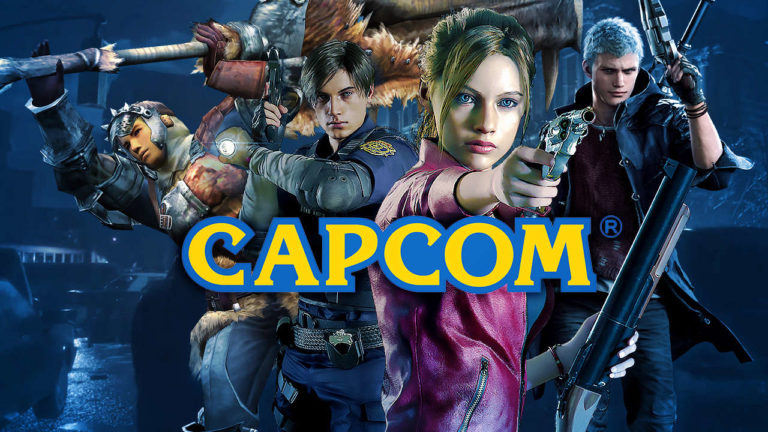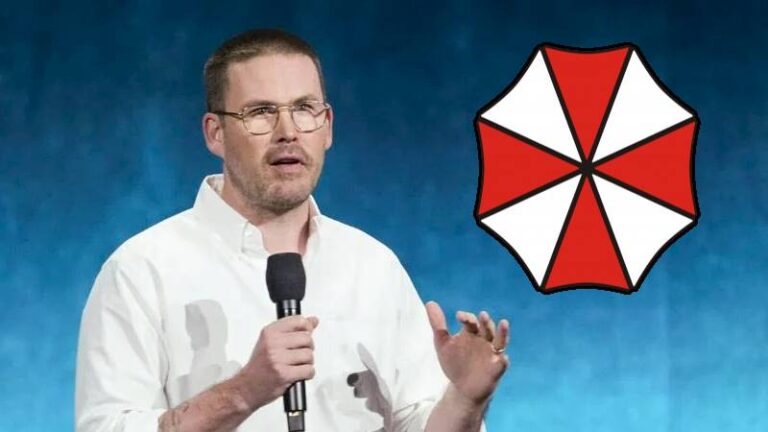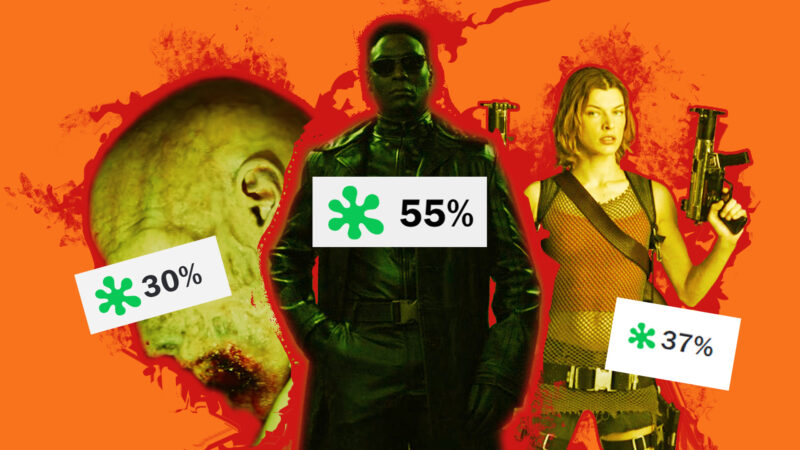
Warning: Major SPOILERS for Resident Evil: Welcome to Raccoon City, and Netflix’s Resident Evil
Now that the dust has settled around the cold, hard death of Netflix’s Resident Evil live-action TV series, I’ve seen the same sentiment being repeated across forums, Twitter, our own comments, and those of other websites: “Why is this so hard?”. Considering the sea of terrible video game adaptations, it’s certainly not a problem isolated to just our favorite survival horror franchise. From the worst of the worst like Alone in the Dark (2005), to the surprisingly great like Sonic the Hedgehog 2 (2022), the quality bar is all over the place but tends to skew towards the lower end. Even at their best (which in my opinion is 2012’s Ace Attorney), fans are often left frustrated at changes to the original story even when it’s a benefit to the switch in mediums. At the end of the day though, does the source material matter that much, really, in a sea of game adaptions that are also just… bad, regardless?
It’s easy enough to cite “betrayal” of the source material as one of gaming on film’s greatest problems. Netflix’s Resident Evil was certainly no stranger to it. Despite promises of being a “sequel to the games” and taking all 8 numbered games (9 actually, which should have been an early warning sign) as canon to its premise, its “accuracy” was laughable at best. From not knowing that the T-Virus outbreak in Raccoon City was very much public, to not even bothering to Google “does the T-Virus have a cure” before making it one of the central plot points in the series, it’s very clear that the showrunner and writers only had a bare minimum knowledge of a handful of Resident Evil specifics. As I said, Netflix’s Resident Evil is pretty easy to tear apart as a fan, and it doesn’t even take a particularly deep knowledge of the series’s history to do so. But let’s face facts: this is not why the show failed.
One of the pivotal problems with the Netflix show was its script. Whether or not its lore was correct, whether or not the writers did their due diligence with researching and correcting every single last fine-tuned detail of game lore, it would have still been a pretty mediocre at best series. From the utterly unlikable protagonist who gets almost everyone she comes in contact with killed through her arrogant stupidity, to inconsistent world-building between what does and does not constitute a post-apocalypse, to its frankly bizarre tonal whiplash between moments of horror and misfire referential humor targeted at presumably a like-minded Gen-Z audience, there was hardly a moment when Netflix’s Resident Evil felt on point in its vision. The one true saving grace, Lance Reddick’s excellent performance/s as Al, Bert, Alby, and of course Albert Wesker, is sadly knee-capped by a storyline that used this revelation as some sort of hook for fans, rather than anything that would be meaningfully satisfying to a non-fan viewer.
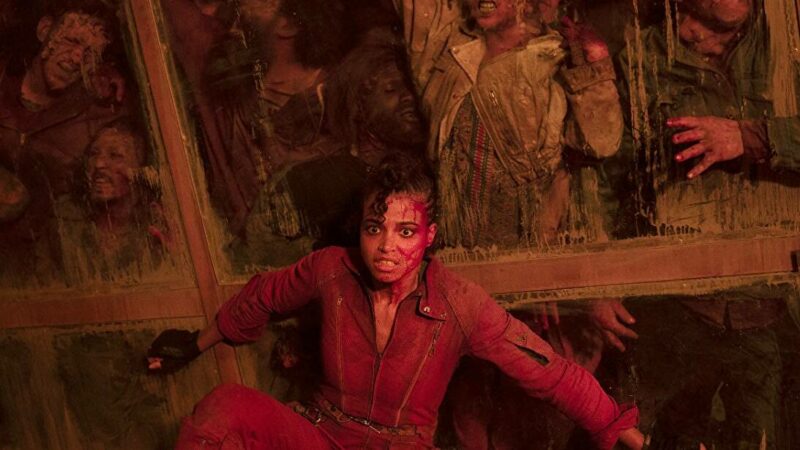
Regardless of the fan pushback (disregarding the pathetic racism and bigotry that continues to flood worthwhile discussion), these are problems the show had with casual audiences. Netflix’s Resident Evil garnered a 55% on Rotten Tomatoes not from fans — but from critics. Green ‘splat’ reviews are accompanied by quotes such as “A confusing, YA-Tinged letdown” (Karama Horne, The Wrap), “To be clear, Resident Evil is not a good show by any means” (Melanie McFarland, Salon), and “I have not been more disappointed in a show in a long time” (Alex Maidy, JoBlo’s Movie Network). Of course, there are almost exactly 50% positive reviews as well, but even those come with quotes like “The show has the ingredients for success but didn’t quite bake it long enough” (Valerie Anne Liston, Autostraddle). The show was middling to bad, regardless of its adherence to the games (although, investment in the games did factor into both some positive and negative reviews).
We need not focus on just Netflix’s take on the series, however. The considerably more faithful Welcome to Raccoon City got even worse reviews, sitting at a 30% critics rating on Rotten Tomatoes. On the fan side of things, players absolutely despised it for the changes it made to characters and motivations (such as Leon being played as a comic relief loser), but that doesn’t change the fact that the film is the most genuine attempt at translating the games to screen we’ve ever gotten. Covering the storylines of Resident Evils 1 and 2 as brief bullet point snippets (S.T.A.R.S. search for Bravo Team in the mansion, Wesker uses it as a cover to steal Umbrella research, Wesker is killed but resurrected by the virus, etc.), and a jaw-dropping level of visual accuracy (I still can’t get over the R.P.D. exterior facade or the Spencer Mansion main hall set), I personally came away mostly satisfied by this altered but none the less earnest attempt at adapting the games. However, their attempts at adhering to the games, for better or worse, isn’t why it failed (no matter how often people like to bring that up). It failed because it was ultimately just not a very good movie.
A messy and rushed story, breakneck and hard-to-follow pacing, Bizzaro-world humor, and pivotal plot points are just left out entirely. In fact, more often than not the attempts to include game content end up backfiring as they lack the proper context to mean anything in a film that doesn’t have time to explain them. A good example is the film’s lone Licker sequence, in which the iconic Resident Evil 2 monster appears in the Racoon City Orphanage to attack Leon and Claire. While I enjoyed the scene (the sequence where we see the swinging lights might actually be one of my favorite Licker moments ever), the Licker showing up for gamer cred interrupts necessary plot development.
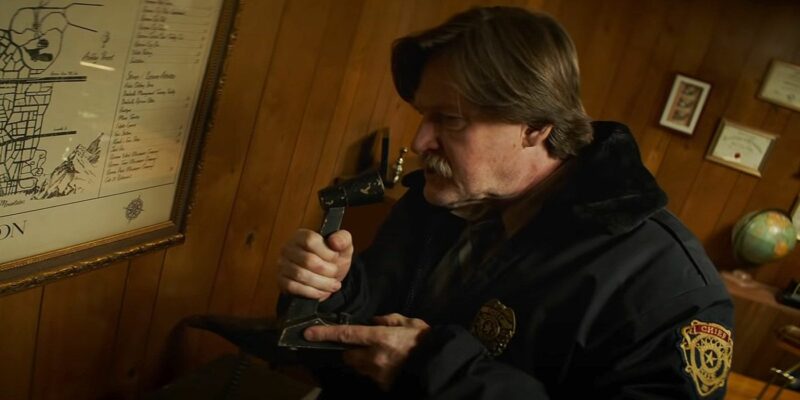
If you haven’t seen the film, Leon and Claire are led into the orphanage by police chief Brian Irons, who in the games has deep ties to Umbrella and has helped them get away with their illegal activities in the city for years (and in the remakes, played an active roll in the kidnap and experimentation of children in the orphanage). In the film, Irons is mostly played off as a bullish asshole who clearly has answers, but we never find out more than that. Umbrella opens fire on him at one point, so it would be easy for a casual audience to assume he isn’t actually working for them. Was he investigating them? Had he always known but never followed up on them out of fear of retribution? These questions go unanswered as a moment where Claire finally corners and questions Irons fades off into the background, unheard and unseen, as Leon stops the movie in its tracks for that cool moment with the swinging lights — and then Irons is killed immediately afterward and any possibility of learning more about this objectively essential backstory is lost forever.
Is the problem here that Irons isn’t faithful to his game counterpart? I’d argue no — the problem is that he’s nothing. We’re left to guess and assume who he was and what his motivations were due to a script that didn’t have time or interest in exploring him. It doesn’t matter whether or not he was the “Brian Irons” of the games, because even for a casual audience his character isn’t explained, explored, or even given a chance to be. He’s here because he’s a character from the games that is supposed to be here, which isn’t in the film’s best interest.
Both of these recent swing-and-misses predicated themselves on at least some level of adherence to accuracy, promising either a “faithful adaptation” or a “sequel to the games”. Yet, here we are, with fans of the franchise disappointed with these adaptations for both not going far enough or sticking close enough — and non-fans unengaged and confused. Which of these two parties is more important to cater to at this point? Paul W.S. Anderson’s sextet of films (which made over a billion dollars) would seem to suggest neither and simply aiming for a lowest common denominator popcorn blockbuster audience. Is that really the best we can strive for with Resident Evil, though? I really hope not. Even with his film’s hefty box office take, they still got terrible reviews, and to this day are held up as an easy punching bag for “bad video game movies”.
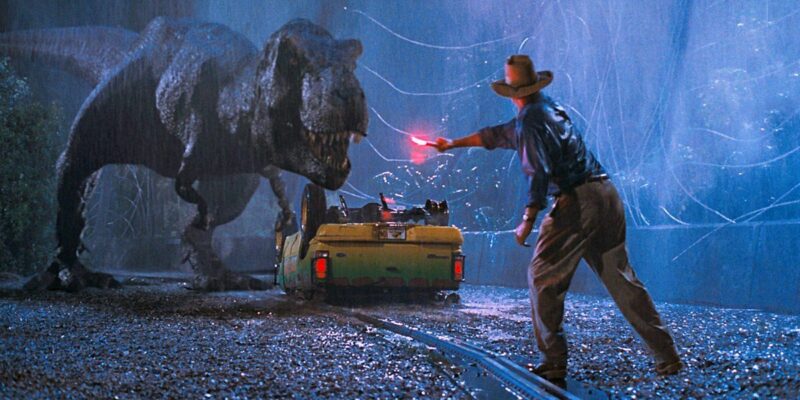
Now I’m not saying that a little more accuracy wouldn’t hurt of course, but it’s hardly the main problem here. A film like Jurassic Park (1993) is a good example to bring up when talking about this sort of thing. Despite it’s status as a beloved classic, it’s objectively as far removed from its source material as Welcome to Raccoon City was. Changing around major character motivations and personalities (Grant of the book loves kids, Grant of the film hates them), scrapping iconic moments (such as the river rafting sequence), and introducing plenty of new ideas of its own (the famous climax replacing a much more subdued and tension-heavy moment in some caves). Jurassic Park eschews 99% of the novel’s slow pacing and the more nuanced collapse of the park, and even the characters that survive flip like a light switch from their book counterparts (both Muldoon and Gennaro survive the novel — Malcolm does not). Is this a betrayal of the source material? Or are these changes made to benefit a film that requires a stronger narrative for individual characters as it morphs the hard sci-fi horror of the novel to a more action-heavy adventure story. Considering Michael Crichton, the author of Jurassic Park, co-wrote the script, probably not. Jurassic Park currently sits at a 92% on Rotten Tomatoes by the way.
I want a hyper-accurate Resident Evil film, of course I do. I’d hoped the TV series could be that when it was first announced all the way back in 2014, something that could (as many fans have expressed for years) adapt a game per season, and use that time to really dive deep into not just the game lore but flesh out characters and their lives outside of the games. Is that really what these games need to be brought up on their feet with these adaptions, though? I’d say no, at least not in the face of 7 films and one TV show that sucked no matter what they did. A little harder emphasis on accuracy wouldn’t hurt of course (although again, Welcome to Raccoon City tried pretty hard and still wasn’t good enough for most). It’s also easy enough for me to say “just hire better writers”, even the best and most seasoned talents can still churn out crap like the rest of ’em (Jurassic Park‘s 1997 sequel, The Lost World: Jurassic Park, sits at a 54%) but it’s striking how low on the totem poll this aspect seems to be for Resident Evil on film.
To wrap up here, I feel it really must be high time we allow for this kind of discussion to happen. All of these things have had varying degrees of faithfulness and faithlessness to the games, and that absolutely hurts to see as a fan, but none of these adaptions would have been good even if they hadn’t been tied in. Netflix’s Resident Evil would have gone completely under the radar and faded off into the miasma of Netflix’s catalog in just a few weeks if it didn’t have the branding on it. Welcome to Raccoon City probably would’ve been direct to DVD at your local Walmart if it didn’t have the license tied in. The low-hanging fruit of “why was Wesker wearing his RE5 costume in 1998″ and “Leon needs to be cooler he’s not stupid!” needs to stop being the center of attention when we talk about Resident Evil on film.
We need to stop asking “why aren’t they accurate?” and start asking “why aren’t they good at all?”. The problem isn’t accuracy but quality, and Resident Evil on film has been pretty much dogshit.

